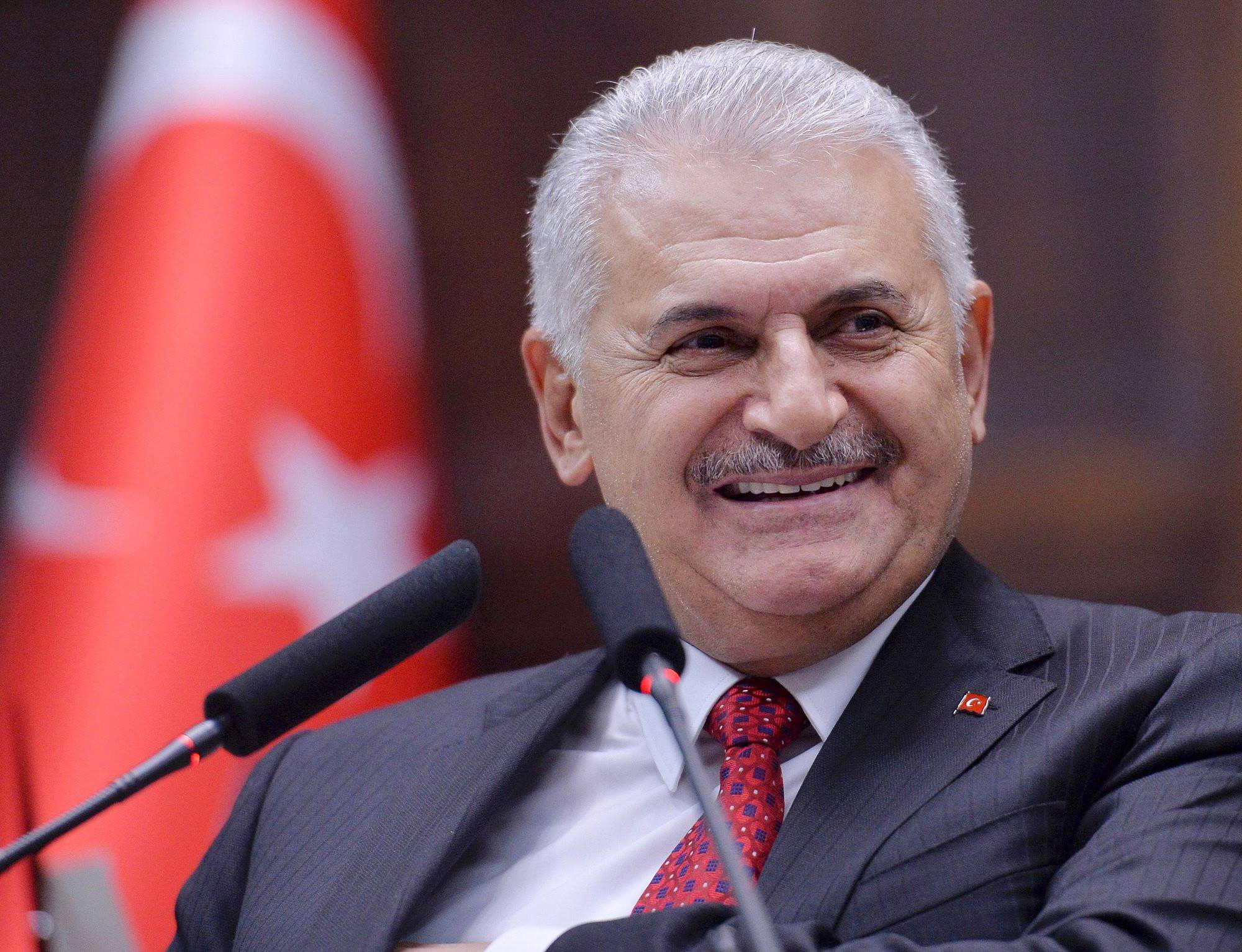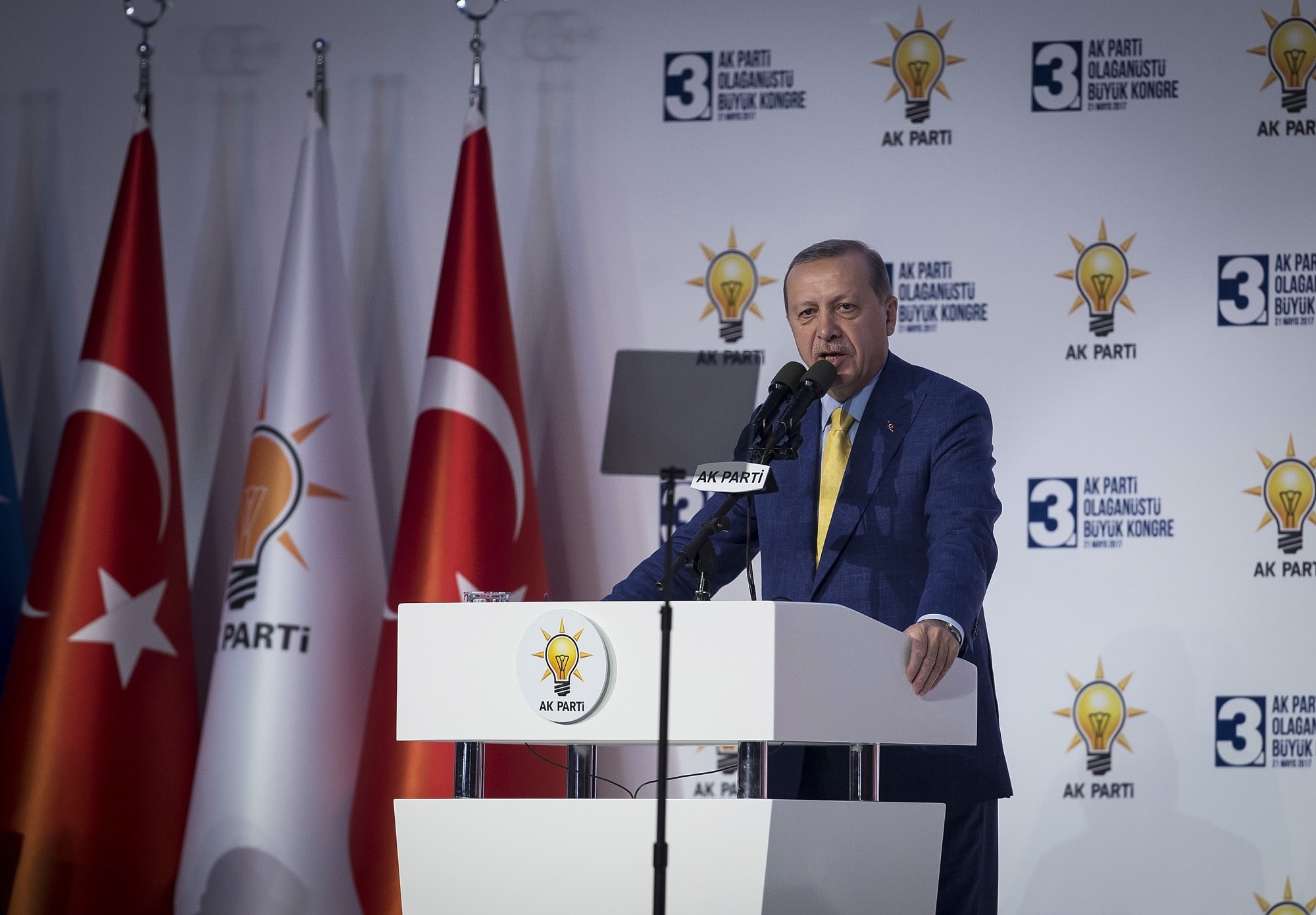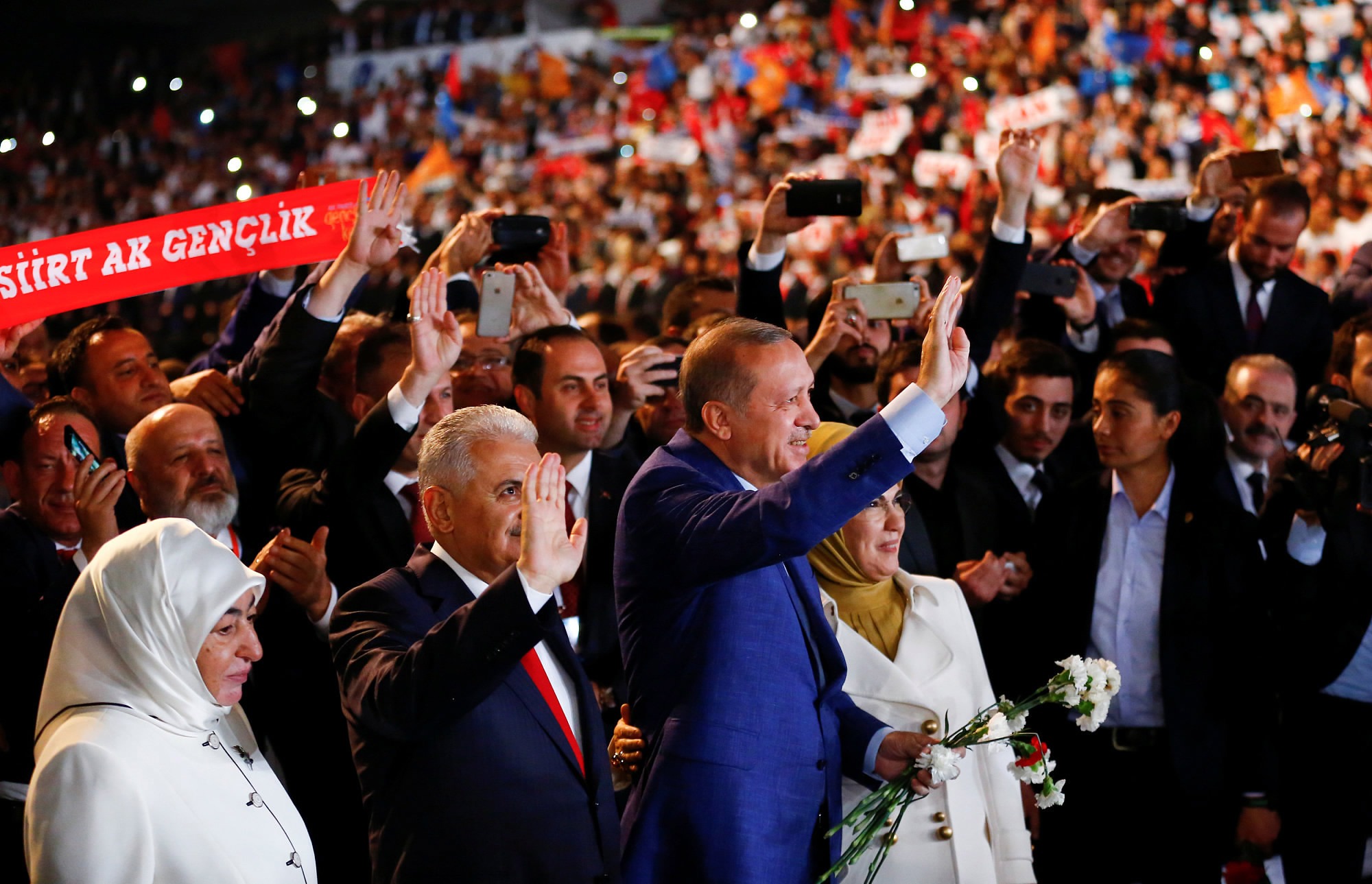Turkish President Recep Tayyip Erdogan was reinstalled as his party's leader on Sunday after three years at a special congress of the ruling Justice and Development Party (AKP).
He was the sole candidate and elected with votes of 1,414 delegates, and replaced Prime Minister Binali Yildirim after April 16 referendum allowed the president to establish links with a political party.

Binali Yildirim smiles as he delivers a speech during the Justice and Development Party's meeting at the Grand National Assembly of Turkey in Ankara on May 16, 2017. /VCG Photo
Erdogan pledged to make massive changes in entire party organization.
"We'll go over major work in the new term. We are determined to realize democratic and economic reform which people demand," he said, addressing thousands of delegates after taking the helm of the ruling party.
"In the upcoming period we will renew our party organization," he said, signaling upcoming efforts to strengthen his party's grassroots for 2019 parliamentary and presidential elections, as Erdogan will need more than 50 percent votes, higher than the latest 49 percent of AKP votes in 2015 elections.
"We have seen how hard it is to get over 50 percent in the 2014 presidential elections and in April 16 referendum. As the AKP, our work is harder now. 34 percent or 40 percent, or even 49.5 percent of votes are not enough to rule. Our goal is 50+1," he said.
"If we want to get this result in the 2019 elections, we should roll up sleeves and start to work immediately. The AKP has not even one minute to waste," he noted.

Turkish President Recep Tayyip Erdogan speaks after being elected as the ruling Justice and Development Party leader in Ankara, Turkey on May 21, 2017. /VCG Photo
Erdogan is expected to reshuffle the cabinet next week and then work for renewal of the party organization until this year.
A constitutional amendment approved at a referendum on April 16 paved the way for Erdogan to be a partisan president as the charter change removed a provision banning presidents from retaining affiliations with political parties.
Erdogan had chaired the AKP for 13 years from 2001 but had to step aside when he was elected president in August 2014, as the constitution prevented president from being affiliated with a political party on the grounds of impartiality of the president.
The presidential system stipulated by the amendment will go into full effect in 2019 when a presidential and parliamentary election will be held at the same time.

Turkish President Tayyip Erdogan greets members of his party during the Extraordinary Congress of the ruling Justice and Development Party in Ankara, Turkey on May 21, 2017. /VCG Photo
"I live the peace of handing over my duty," Prime Minister Binali Yildirim said at the gathering.
Although the prime minister handed over its party chairmanship, Erdogan still cannot head the AKP's parliamentary group as he is not a lawmaker at the parliament. Therefore, the ruling party has changed its regulation at the congress, so that Yildirim will be elected as the parliament group chairman on May 24 to become the acting chairman of the party.
More than 60,000 participants across Turkey, including the representatives of the political parties, previous deputies, provincial heads, opinion leaders, people with disabilities, martyrs, veterans and foreign representatives, were invited to the congress.
(Source: Xinhua)









